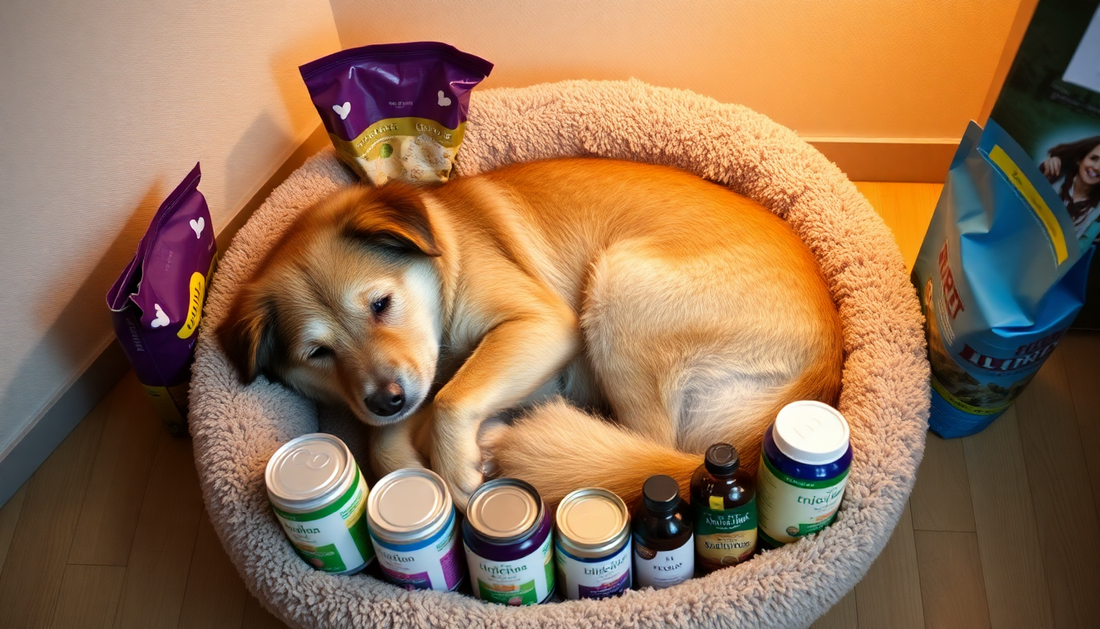
Organic Pet Food and Supplements, Worth the Price?
Share
As pet owners, we all want to provide the best care for our furry companions. In recent years, the rise of organic pet food and supplements has caught the attention of many conscientious consumers. But is the higher price tag really worth it? Let's dive into the world of organic pet products and explore whether the benefits outweigh the costs.
What Makes Pet Food and Supplements Organic?
Organic pet products are defined by the same standards as organic human food and supplements. To be considered organic, pet food and supplements must be made with ingredients that are grown without the use of synthetic pesticides, fertilizers, or genetically modified organisms (GMOs). Additionally, organic livestock used for meat or dairy products must be raised in a humane environment without the use of antibiotics or growth hormones.
The certification process for organic pet products is similar to that of human organic foods. Reputable organizations like the United States Department of Agriculture (USDA) and the National Organic Program (NOP) oversee the strict guidelines and testing required for a product to earn the coveted "organic" label.
Benefits of Organic Pet Food and Supplements
The primary appeal of organic pet products lies in the potential health and environmental benefits they offer. Let's take a closer look at some of the key advantages:
Nutritional Advantages
Organic pet food and supplements are often touted for their superior nutritional content. Without the use of synthetic additives and preservatives, these products can provide a more natural and wholesome source of essential vitamins, minerals, and antioxidants. This can translate to improved digestion, stronger immune systems, and overall better health for our four-legged friends.
Potential Health Improvements
Many pet owners believe that organic diets can help alleviate or prevent certain health issues, such as skin conditions, allergies, and even cancer. The absence of harmful chemicals and the use of high-quality, natural ingredients are thought to have a positive impact on a pet's well-being.
Environmental Impact
Choosing organic pet products can also have a positive impact on the environment. The sustainable farming practices used to grow organic ingredients, as well as the reduced use of synthetic chemicals, can help minimize the carbon footprint and promote a healthier ecosystem.
Potential Drawbacks
While the benefits of organic pet products are compelling, there are also some potential drawbacks to consider:
Higher Cost
One of the most significant barriers to adopting organic pet products is the higher price tag. Organic ingredients, strict manufacturing processes, and smaller production scales can all contribute to the increased cost, which may be prohibitive for some pet owners.
Limited Availability
Depending on your location, finding a wide selection of organic pet products may be a challenge. While the availability is steadily improving, consumers in certain areas may have limited access to these specialized items.
Shelf Life Considerations
Organic pet food and supplements, due to their lack of preservatives, may have a shorter shelf life compared to their conventional counterparts. This can make storage and planning more challenging for pet owners.
Comparing Organic vs. Conventional Pet Products
When it comes to the nutritional content and potential health benefits, the research on organic pet products is still somewhat mixed. While some studies have shown promising results, others have found little to no significant difference between organic and conventional pet foods.
In terms of price, the cost of organic pet products can be significantly higher, often ranging from 20% to 100% more than their conventional counterparts. This price gap can be a major factor for pet owners on a budget.
Is It Worth the Price?
Ultimately, the decision to invest in organic pet food and supplements comes down to a personal assessment of your priorities and budget. For those who are willing and able to absorb the higher costs, the potential health and environmental benefits may be worth the price tag. However, for pet owners with tighter financial constraints, a balanced approach that incorporates both organic and conventional products may be a more practical solution.
Tips for Choosing Organic Pet Products
If you do decide to explore the world of organic pet care, here are a few tips to keep in mind:
Read Labels Carefully
Scrutinize the ingredient lists and look for the USDA Organic or NOP certification seals to ensure you're getting a truly organic product.
Consult with Your Veterinarian
Discuss your pet's specific dietary needs and any health concerns with your veterinarian. They can provide valuable guidance on the best organic options for your furry friend.
By weighing the pros and cons and making an informed decision, you can determine whether organic pet food and supplements are a worthwhile investment for your beloved companion. Remember, the most important factor is providing your pet with a balanced, nutritious diet that supports their overall well-being.
